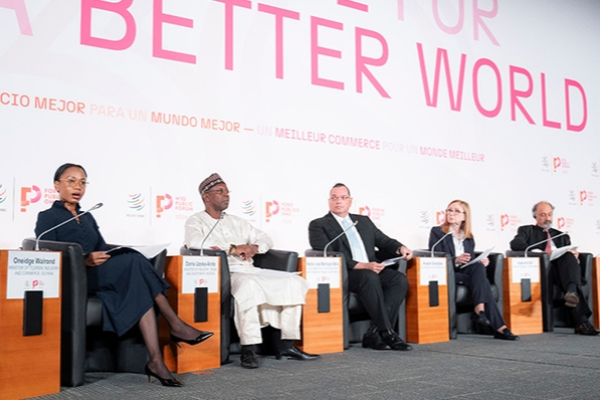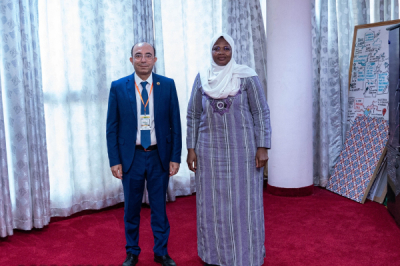Landlocked African countries heavily rely on neighboring nations' markets, infrastructure, and institutions, making them economically vulnerable. To enhance their economic resilience, the adoption of new trade facilitation methods is crucial.
On September 10, Botswana's permanent mission in Geneva, Switzerland, organized a forum to discuss strategies for boosting digital trade in landlocked countries. The event was organized under the theme ‘Overcoming Geography: Digital Trade in Landlocked Developing Countries (LLDCs),’ on the fringes of the World Trade Organisation (WTO) Public Forum 2024. It focused on how to meet the unique challenges faced by landlocked nations, particularly in Africa, to participate in global trade.
Torbjörn Fredriksson, head of e-commerce and the digital economy at the United Nations Conference on Trade and Development (UNCTAD), explained that there is a need for “ more investment in ICT infrastructure, strengthening the capacity of policymakers to put in place a favorable legal environment, intensify efforts to improve digital and financial literacy and other skills, including through more effective public-private collaboration, and strengthen support for improved trade logistics and trade facilitation, including paperless cross-border trade.”
Vuyile Dumisani Dlamini, Eswatini's Permanent Representative, stressed the need to invest in “ a robust digital infrastructure coupled with a vibrant skills development and supportive regulatory environment, including international cooperation.” He justified this approach given the importance of digital commerce, which “can help to reduce trade costs, improve market access and foster economic growth.”
Moderating the discussion, Gerelmaa Davaasuren, Mongolia's Ambassador and Permanent Representative to the United Nations, said that it is also necessary “to fully digitize customs processes to reduce the high trade costs faced by landlocked countries due to their lack of direct access to the sea.”
During the discussion, emphasis was also placed on the potential of the creative industry in digital trade, advocating collaboration with various organizations to improve transactions. The formation of alliances was suggested as a way of streamlining support and funding efforts. In addition, the disparity in ownership of digital devices between developed and developing regions was noted, underlining the importance of equitable access to digital resources.
There are currently 32 landlocked developing countries in the world, 17 of which are classified as least developed countries. According to the World Bank report ‘Improving Trade and Transport for Landlocked Countries’, one of the characteristics of these countries is their low per capita income compared to neighboring transit countries. They are often heavily dependent on the markets, infrastructure, and institutions of their neighbors, making regional cooperation and investment in digital trade vital to their economic growth.
Hikmatu Bilali



















